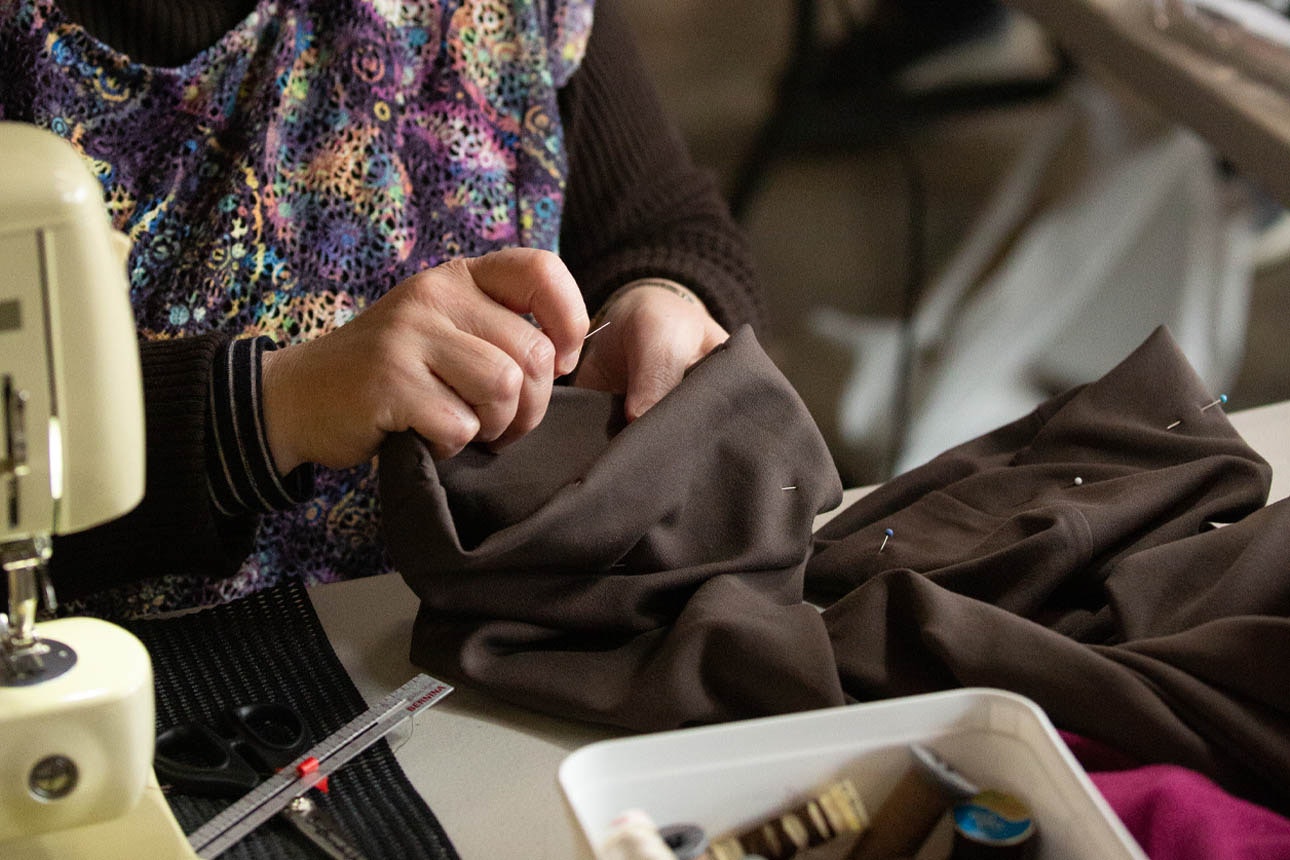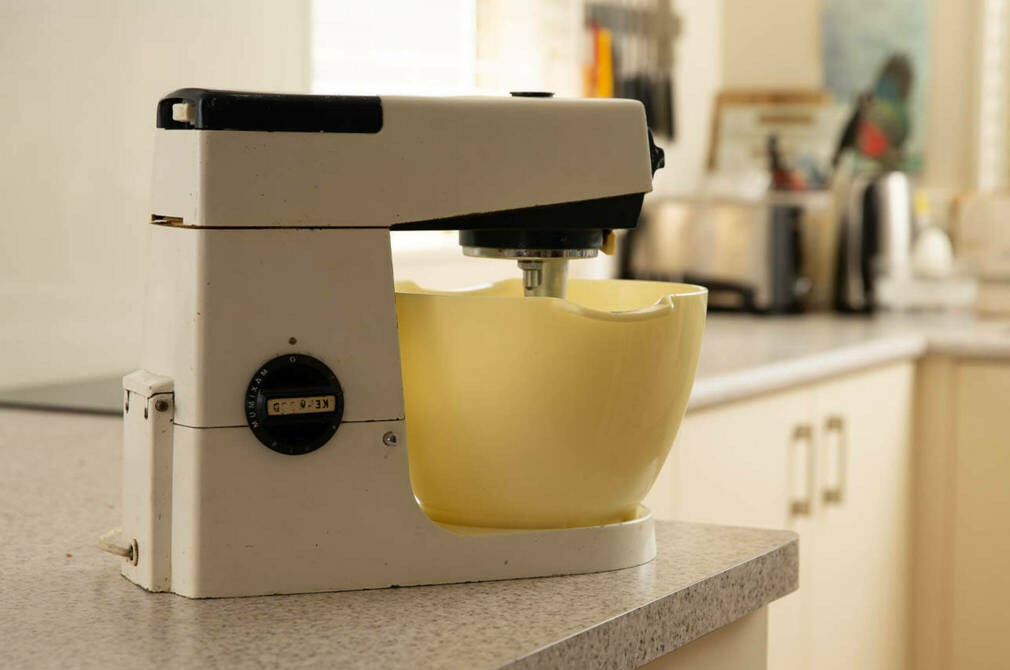Some nights, after a busy workday, the rush to collect the kids and the long drive home, you just don’t have it in you to cook a family meal. Imagine not having to. Instead, somebody simply drops by with a dish that just needs to be put in the oven – free of charge! This is one of the possibilities through timebanking.
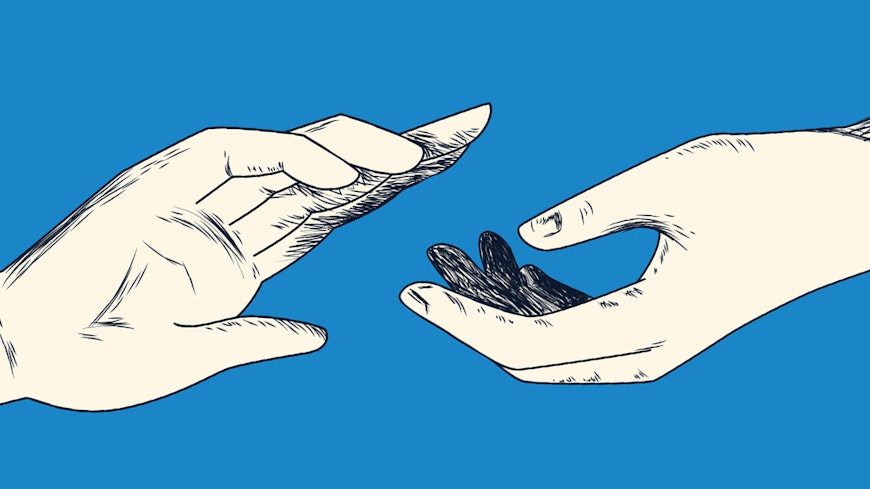
How does timebanking work?
Timebanking is a community-led practice in which members trade their skills for time credits. One time credit equals one hour’s work.
It works like this: Alana asks Eduardo to take photos at an event she’s planned. The event is a collage workshop which several people attend, including Rebecca. Following this, Rebecca hosts her own workshop on seaweed foraging, which Sonya takes part in. Later, Bea collects a yoghurt culture from Sonya, after cleaning graffiti for the Aro Valley Community Centre. Trades like these continue, branching out to other members, to form a community.
Timebanking serves to reward work that is typically unpaid, yet is crucial to a functioning society, while also connecting people to their communities and creating stronger networks.
The philosophy of the time-based currency exchange had its roots in the 19th century and evolved into the world’s first modern timebank in Japan in 1973. The idea really took off in America in the 1980s and offered a way to uplift individuals in communities, in particular the disenfranchised and underprivileged.
One of its founders, Dr Edgar Cahn, wrote in 2007: “No society has the money to buy, at market prices, what it takes to raise children, make a neighbourhood safe, care for the elderly, make democracy work or address systemic injustices.”
Uniting people from many walks of life
Timebanks are diverse by nature. Members come from different socio-economic backgrounds, ages and ethnicities.
New migrants can be attracted to timebanking as an entry point into the community. Recently retired people who want to keep active and involved in their community are also big contributors. Generally, anyone who wants to learn skills, free up some of their time or meet people are drawn to it.
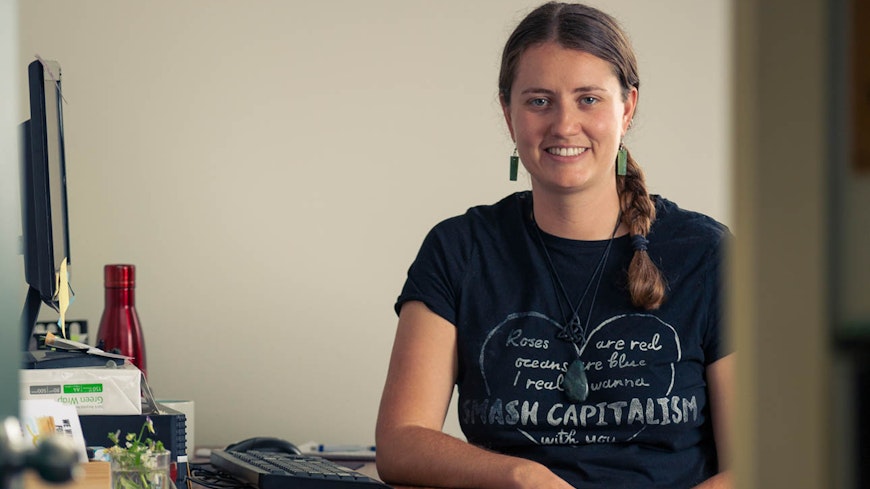
Alana
Since the first official New Zealand timebank was set up in 2004, 31 others have been established in Aotearoa. They are all steered by local volunteers and have collectively exchanged upwards of 332,000 hours within their communities.
At the Wellington Timebank in Newtown, the co-ordinator Alana Kane and ten others in the member-led steering team, manage everything. Wellington members collectively have logged almost 30,000 hours.
Services include borrowing a sewing machine to getting a haircut, knitting a sweater, fixing guitars, foraging for seaweed, digitising historical photographs, tutoring NCEA maths and grabbing a cup of coffee for companionship.
In cases where materials are needed, the person requesting the trade needs to pay for the supplies, though for some trades the Wellington Timebank steering committee can help supply materials and venues.
Alana has been a member of the Wellington Timebank since 2017, and an on-and-off co-ordinator since 2019. She was drawn to timebanking because of the strong community and support it offers, and the benefits of learning new skills was a bonus.
Alana offers swimming lessons, kombucha scobies, Spanish conversation for English speakers and vice versa.
Stronger together
After the Canterbury earthquakes of 2010 and 2011, the Lyttelton Harbour Time Bank helped many locals. This inspired Sonya to work with the Newtown Community Centre and Wellington City Council in establishing the Wellington Timebank. Sonya said that after the first quake there was a lot of concern about community resilience, and creating a local timebank seemed like a good way to connect people.
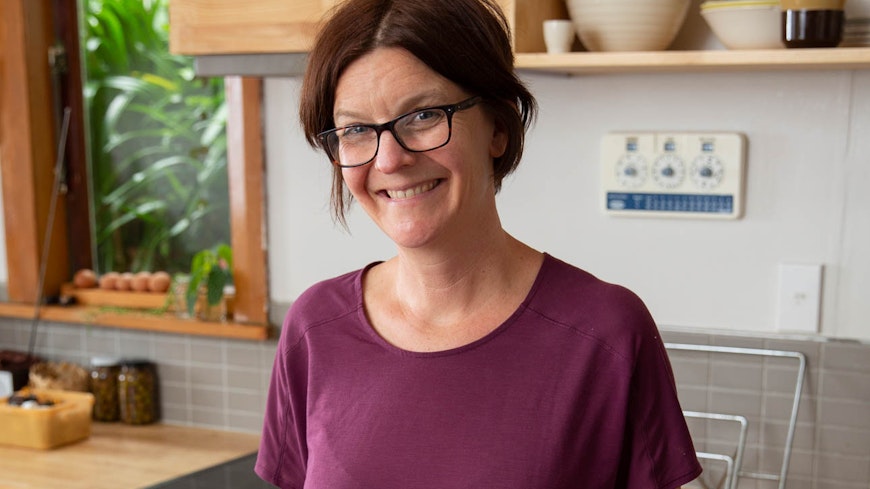
Sonya
“I've always sort of felt like timebank presents kind of a way of living, or an economy and a way of living, that's actually positive and that enables us to have much more sort of personal interactions with each other.”
Sonya had been living in Wellington for eight years when she had a realisation.
“I didn’t necessarily feel I was particularly well connected into the community, you know, like I had friends and all that sort of stuff, but I didn’t really feel like I knew lots of people and didn’t really feel like I was part of any particular community,” Sonya said.
The timebank changed that for her.
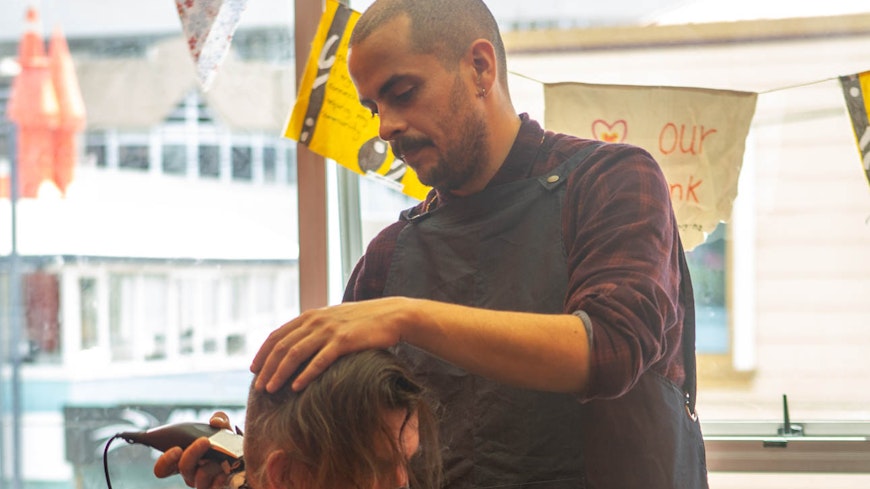
Eduardo
Now she feels like she is part of her community and has learnt many skills, such as brewing beer and making tamales. One of her popular trades is sharing a yoghurt culture, as well as teaching people how to make cleaning products, for example laundry liquid, moisturisers and deodorants.
Eduardo, or Edu for short, moved to Wellington from Peru in 2019 to work on his PhD in geography. He met Alana not long after settling in and was introduced to the timebank.
He saw it as a great way to meet more people and exercise his other skills which were largely put on hold while focusing on his studies. Edu offers haircuts, grammar checks and publication editing, as well as translations.
He’s found the diversity and community of the timebank to be the most important aspect for him.
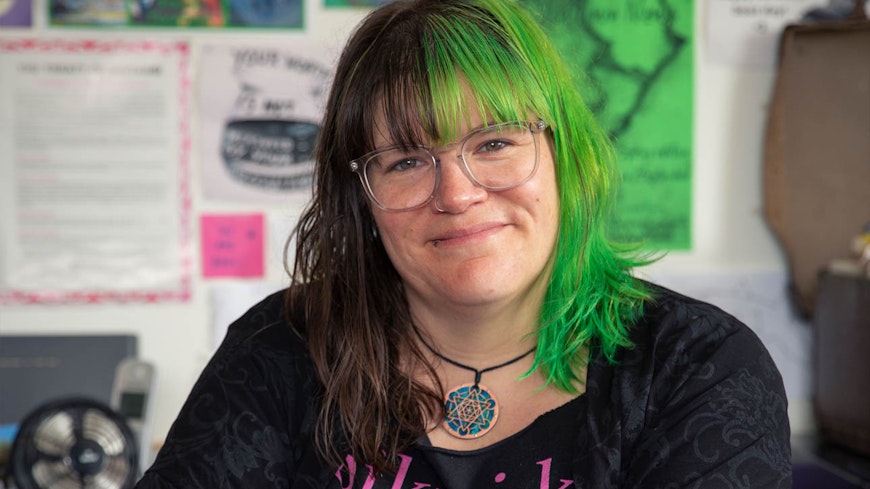
Eryn
He saves up his time credits every year to use at the annual Christmas Gift Shop, where he can tick off his Christmas list. He only pays pocket change to cover material costs and manages to save a lot of money this way every holiday season, while also finding unique and artistic gifts.
Eryn has been with the Wellington Timebank for more than nine years. She is now a kaiwhakahaere (manager) of the Newtown Community and Cultural Centre, where the timebank is housed.
A large part of Eryn’s involvement was through the non-profit Alpha Art Studio, which provided a studio and gallery for adults with intellectual disabilities. The timebank offered a way to support the artists and help connect them with their wider community with no extra costs.
Eryn believes this aspect of the timebank – allowing people to access what may otherwise be financially unavailable – is invaluable.
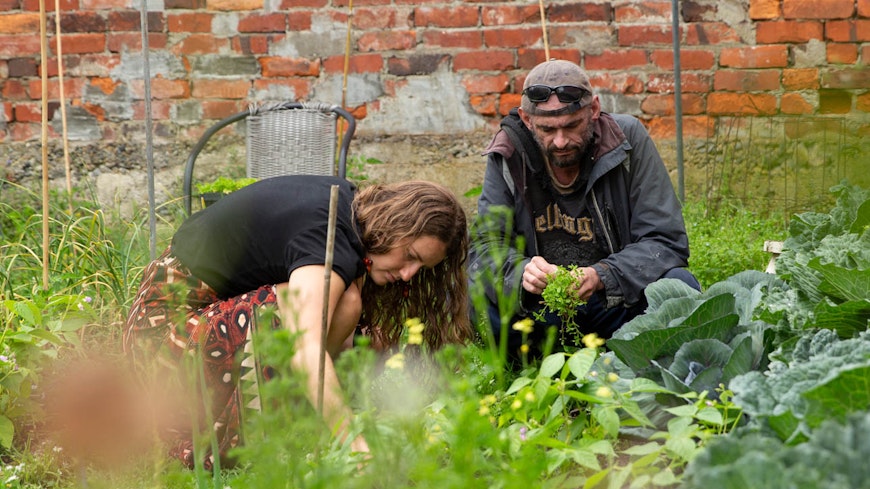
Alana helps a fellow timebanker garden
“The cost of living has increased hugely and people are struggling a lot more,” she said. “And maybe some of the things that are going to suffer from that are those extra things that make your quality of life better – like learning a new thing, like exploring an artistic talent. These become ‘nice-to-haves’ instead of essentials to our wellbeing, which I firmly believe they are.”
Alana encourages people to get stuck into timebanking if they’re interested.
“People get nervous about [not having] enough time, or that they’ve not got any skills to share … the whole idea about timebank is that if you’ve not got enough time, it should free up time because you can pawn off those things that you don’t have time to do, to someone else,” Alana said.
“No matter what it is that you’re offering, that should be valued … Everyone’s got something to offer, even if it’s just going for a cup of coffee with someone and giving someone some company … going to pick up shopping for someone when they’re sick.”
Paying it forward
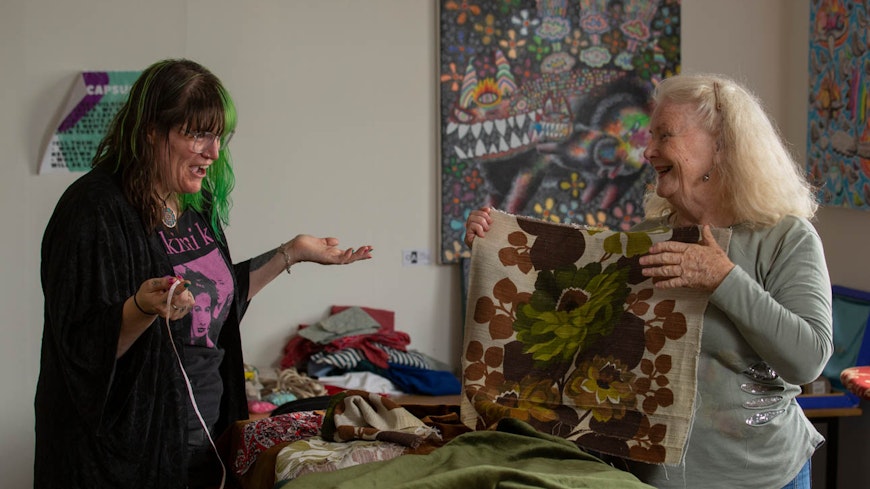
Eryn teaching embroidery
When you sign up, you have to agree to a code of conduct, which includes acting respectfully towards others. After this you need to supply a criminal conviction check, along with two character references from friends or whānau.
The Wellington co-ordinator, Alana, said that some people who aren’t involved with the timebank might worry about putting in time for people who aren’t doing the same for others. But she said the culture surrounding timebanking is a trusting one, and members want to support one another.
“It’s okay to be in time debt … in your lifetime [there are] times where you have a lot more to give, and other times where you need a lot more support, and that’s okay.
“We don’t have to be punishing someone for needing more in a moment in their life … and for that person [you’re trading with], it’s important because they’re getting to share their skills with you that maybe they don’t get to do that often, you know … you’re like, empowering that person.”
Eryn shares this sentiment.
“Just using the timebank and not having the time to give back – you know, that's fine because life ebbs and flows ... everything balances out too, right? If somebody has a little bit more need, I might have more to give.”
Members tend to be more hesitant about asking for help than they are about offering it, Eryn said. However, she believes the culture of timebanking works to change this.
“I think that we are taught not to ask for help,” Eryn said. “And timebanking reframes that, and it gives you permission to ask for help in this way that's actually really empowering.
“I do struggle to ask for help when I need it… [The timebank] really changes the discourse around that and being like ‘you need help, well I need help too – let’s help each other’.”
If you’re interested in timebanking, you can search if your city has a local organisation you can get involved with.
Public Interest Journalism funded through NZ On Air
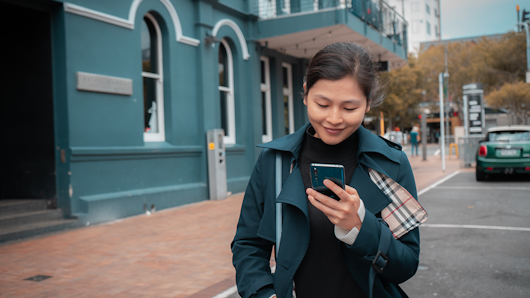
Subscribe to our newsletters
Get even more Consumer NZ news and invitations to share your voice on important issues straight to your inbox. You don’t have to be a member to have these newsletters emailed to you regularly.
